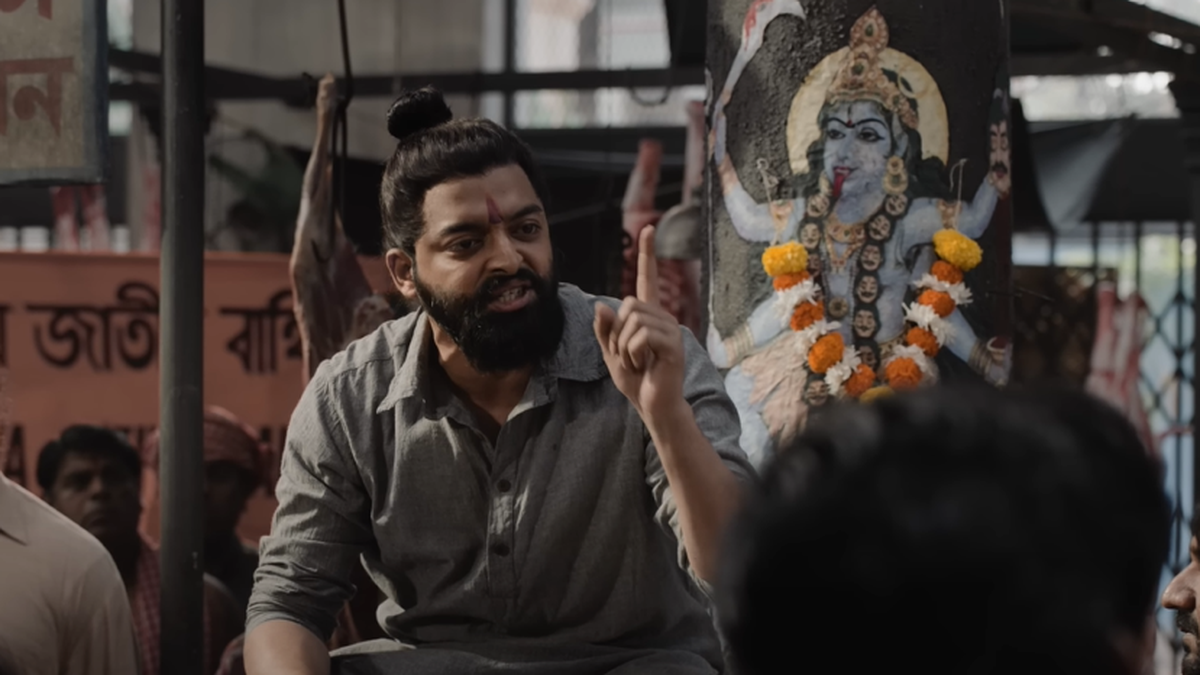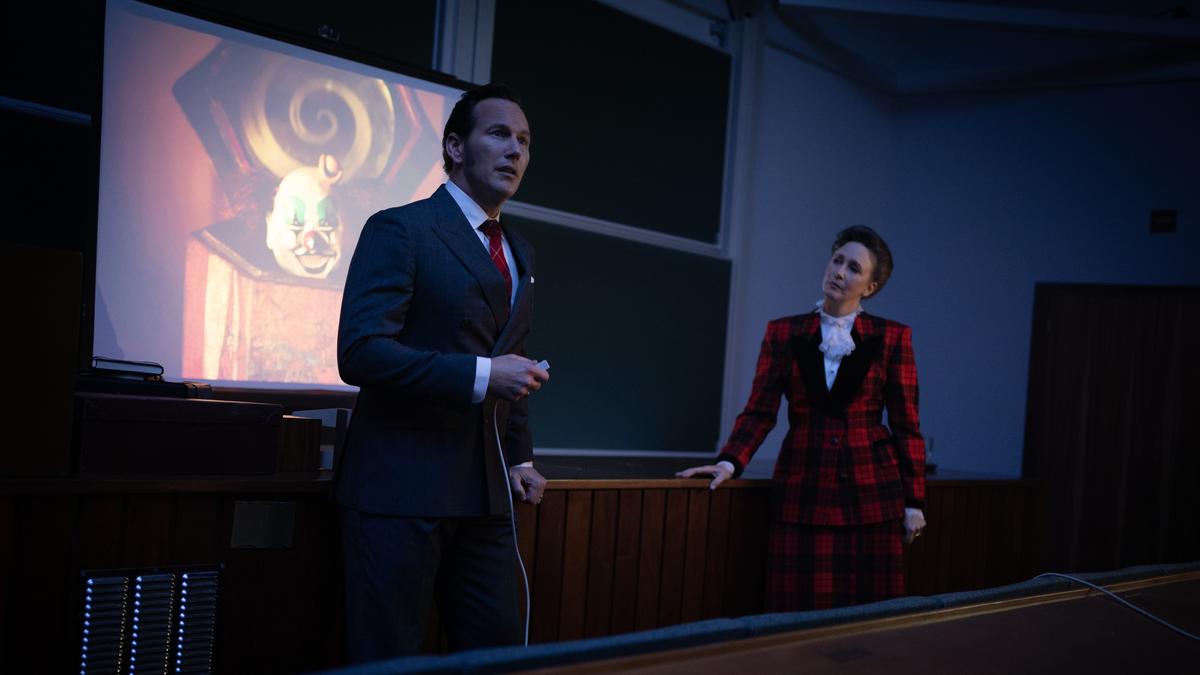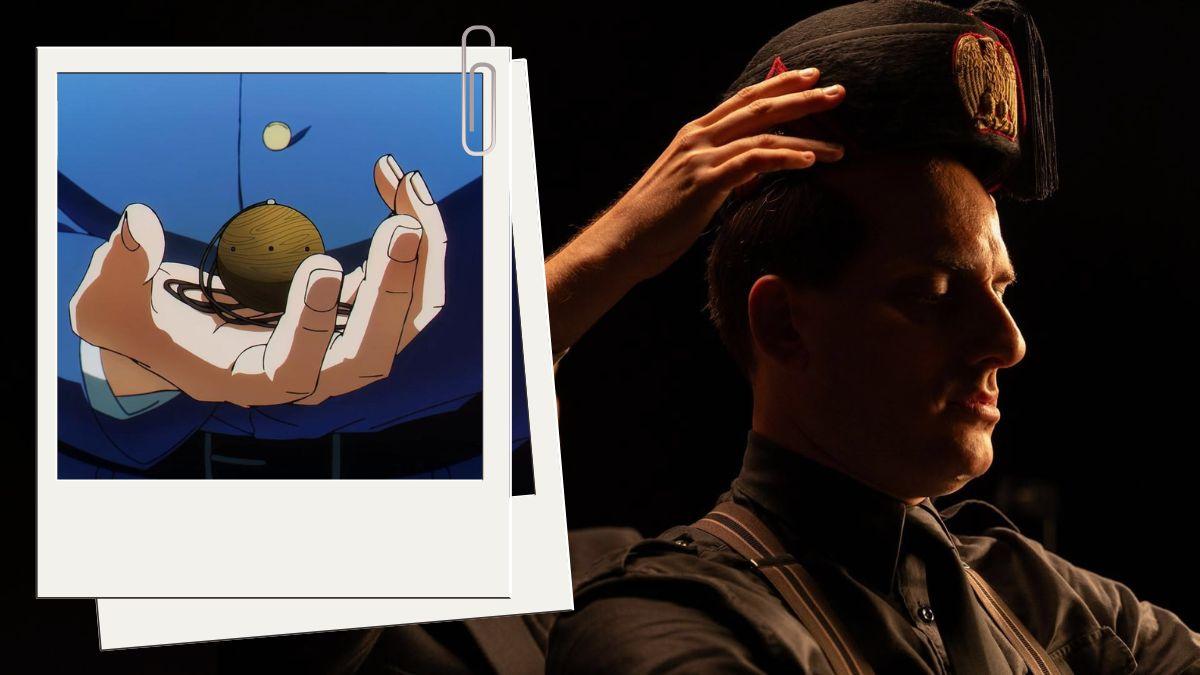As the end credits of Ghaati rolled, the words “The Queen – Anushka Shetty” appeared on screen. It felt apt. Anushka carries a regal presence and has proven across her 20-year career that she can embody powerful characters. Directed by Krish Jagarlamudi, this Telugu film is an action-heavy spectacle, with Anushka playing a woman seeking revenge and striving to lift her community out of an endless cycle of exploitation. Yet, the film struggles to fully realise its potential as a gripping action drama, leaning more on familiar tropes and sheer force than on nuance.
The story’s broad contours will feel familiar. Those without a voice toil while business heads profit from their labour, ensuring that people cannot take matters into their own hands. When the oppressed are pushed to the brink, rebellion becomes inevitable, and every rebellion, of course, needs a leader.
Ghaati (Telugu)
Director: Krish Jagarlamudi
Cast: Anushka Shetty, Vikram Prabhu, Jagapathi Babu, Ravindra Vijay, Chaitanya Rao
Run time: 156 minutes
Story: A woman has to rise against powerful forces to avenge the injustice to her and her community.
The setting injects a fresh flavour into a familiar story. The Eastern Ghats, around Koraput on the Andhra-Odisha border, are steeped in real-life accounts of police seizing huge marijuana hauls. The local porters, known as ghaatis, historically helped the British lay roads across the mountains, ferrying hundreds of kilograms up steep slopes. Ghaati, written by Chintakindi Srinivas Rao with a screenplay by Krish Jagarlamudi and dialogues by Sai Madhav Burra, uses this terrain to give a new spin to a conventional revenge drama.
Manojh Reddy Katasani’s cinematography captures the ghaatis in sweeping bird’s-eye shots, their diminutive frames framed against towering mountains. Up close, their resilience emerges vividly. The narrative accelerates from the first hour, portraying the gruelling life of these mountain porters.

Anushka Shetty enters matter-of-factly, with no slow-motion or grand reveals. She is a bus conductor, looking forward to marrying her childhood sweetheart, Desi Raju (Vikram Prabhu). In the opening bus sequence, a subtle ‘mass’ moment hints at her latent strength. Her character, Sheelavathy, has a backstory linked to a variety of cannabis grown on the ghats.
Several supporting characters are introduced — Jagapathi Babu as a police officer, and Ravindra Vijay and Chaitanya Rao as business tycoons. The story occasionally evokes Pushpa: The Rise, particularly in scenes where cartel leaders resist the ghaatis encroaching on their operations. Repetitive dialogue underscores the exploitative mindset of these men, which, while reminiscent of other films, also reflects universal oppressor dynamics.
The narrative shifts to Sheelavathy’s transformation into a force to be reckoned with, echoing stories like Phoolan Devi’s. It remains a predictable trope of mainstream cinema. Performances are solid across the board — Anushka, Vikram Prabhu, Ravindra Vijay, and Chaitanya Rao — but the use of sexual violence as a plot device and the persistent male gaze are predictable and distract from the story’s potential.

The film excels in world-building: festivals are celebrated with a mix of Andhra and Odisha flavours, costumes (by Aishwarya Rajeev) pop with regional vibrancy, and Sheelavathy’s romance with Desi Raju is warm and endearing, with a key reveal after the first hour adding momentum. Yet, all this promise wanes as the narrative follows a predictable trajectory.
Later sequences focus on Sheelavathy’s revenge. Anushka delivers with conviction, owning the action choreography and mass moments. She hauls hundreds of kilograms, fends off a dozen men at once, and dominates the screen. Visual metaphors abound, from Sita setting Lanka ablaze to Goddess Durga, but after a point, these prolonged sequences and the relentless bloodbath begins to exhaust the viewer. Some clever plotting or mind games in place of brute force could have elevated the climax.
The film often spells out what visuals already convey. A characters declares, “This is art and she is a brilliant artist,” or call her a “rebel queen;” the latter reference is a nod to Prabhas being referred to as ‘rebel star’. These moments, however, feel over-explained rather than organic.

It remains Anushka’s show, though a few others leave an impression. Vikram Prabhu exudes quiet strength in contrast to Anushka’s ferocity. Chaitanya Rao, fresh from Maya Sabha, channels pure villainy, with costume cues from colourful bling to monochrome signalling shifts in motive. Ravindra Vijay conveys calculated menace, while Jagapathi Babu keeps the audience guessing as a shapeshifter. Sagar Nagavelli’s music complements the early portions but eventually succumbs to the film’s overall loudness.
Ghaati begins with promise but never quite reaches it. Krish Jagarlamudi is no stranger to immersive storytelling in unusual settings, yet this time, the narrative is bound by formulaic beats, leaving the film less compelling than it could have been.

 10 hours ago
1
10 hours ago
1





















 English (US) ·
English (US) ·